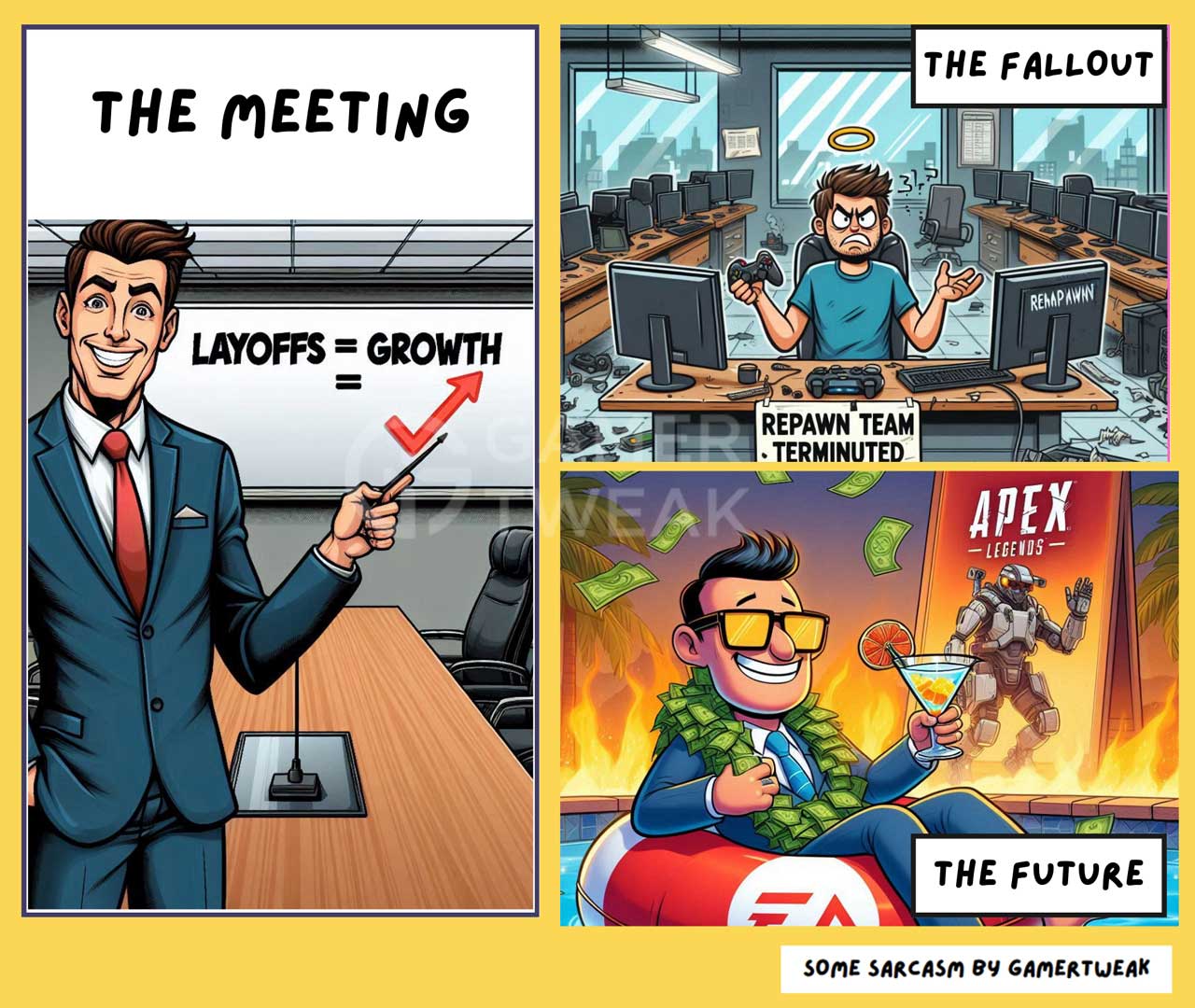When Electronic Arts confirmed another 200 job cuts this week—just hours after Respawn’s own layoffs and project cancellations—most gamers barely blinked. We’ve become numb to industry bloodbaths. But buried under HR statements and PR polish lies a darker truth: this round of cuts isn’t just about numbers. It’s about your games.
Respawn Is Bleeding: Why That Matters

Respawn wasn’t just another studio. It was the creative powerhouse behind Apex Legends and Star Wars Jedi: Survivor. Now? It’s shrinking. Fast.
- 100 developers gone
- Two early-stage incubation projects killed
- Cuts hit development, QA, and publishing — the entire pipeline.
Respawn’s statement was polite, even nostalgic. “We carry your legacy with us into everything we create next.” But behind the sentiment is silence. Silence about what those canceled projects were. Silence about how a live-service giant like Apex runs with fewer hands.
Let’s break it down:
- Apex Legends just ended its Season 20 update with major criticism over stale meta and balancing issues.
- The Star Wars Jedi series was rumored to be gearing up for a third installment.
- One of the incubation projects could have been the long-rumored Titanfall resurrection. Now, gone.
- When the core team is gutted, your game doesn’t die. It just slowly stops evolving.
EA Is “Restructuring” — But At What Cost?

The additional 200 job losses from EA’s “Experiences” division—covering marketing, community support, and fan care—are positioned as a way to “drive future growth.
But when growth comes at the cost of the people who talk to players, fix bugs, and fight for game quality, the results can be catastrophic:
- Slower response to bugs or balance issues.
- Decline in community engagement and transparency.
- Potential content delays in live-service games.
- Lack of creative vision continuity in sequels and DLC.
In short: less magic, more maintenance.
The Bigger Trend: 2025’s Grim Tally So Far
EA is not alone. The first four months of 2025 have been a slaughterhouse for developers:
- 1,800 developers laid off
- Studios affected: Ubisoft, NetEase Games, Liquid Sword, Splash Damage, Night School Studio, Eidos Montréal, Iron Galaxy, and many more.
EA itself has laid off:
- 5% of its employees in Feb 2024
- 6% the year before
- Another ~300 in April 2025
The layoffs aren’t just cost-cutting. They’re a reshaping of how games are made – and who gets to make them.
The Invisible Casualty: Creative Risk
When incubation teams are disbanded, innovation takes a hit. These are the teams that cook up:
- New IPs
- Genre crossovers
- Risky storylines
- Wild experimental prototypes
Without them, we don’t get another It Takes Two. We don’t get Titanfall. We just get more seasonal updates and “safe bets.”
What This Means For Gamers?
You won’t feel it immediately. But over time, your favorite franchises may begin to:
- Feel hollow
- Update slower
- Release fewer spin-offs or expansions
- Lose their identity
Would you notice if Apex Legends lost its best map designers? Or if Jedi Survivor’s next installment felt like a cash-in? Because that’s the real impact. Layoffs don’t just hurt people. They fracture the soul of the games we love.
So… What Now?
EA’s restructuring may be “strategic,” but its consequences are emotional and cultural.
Gamers now face a choice:
Keep buying content from companies downsizing the teams behind them? Or start demanding more transparency and better treatment of developers before opening our wallets? This isn’t just about jobs. It’s about trust. And it’s about whether the next great game gets to exist at all.

